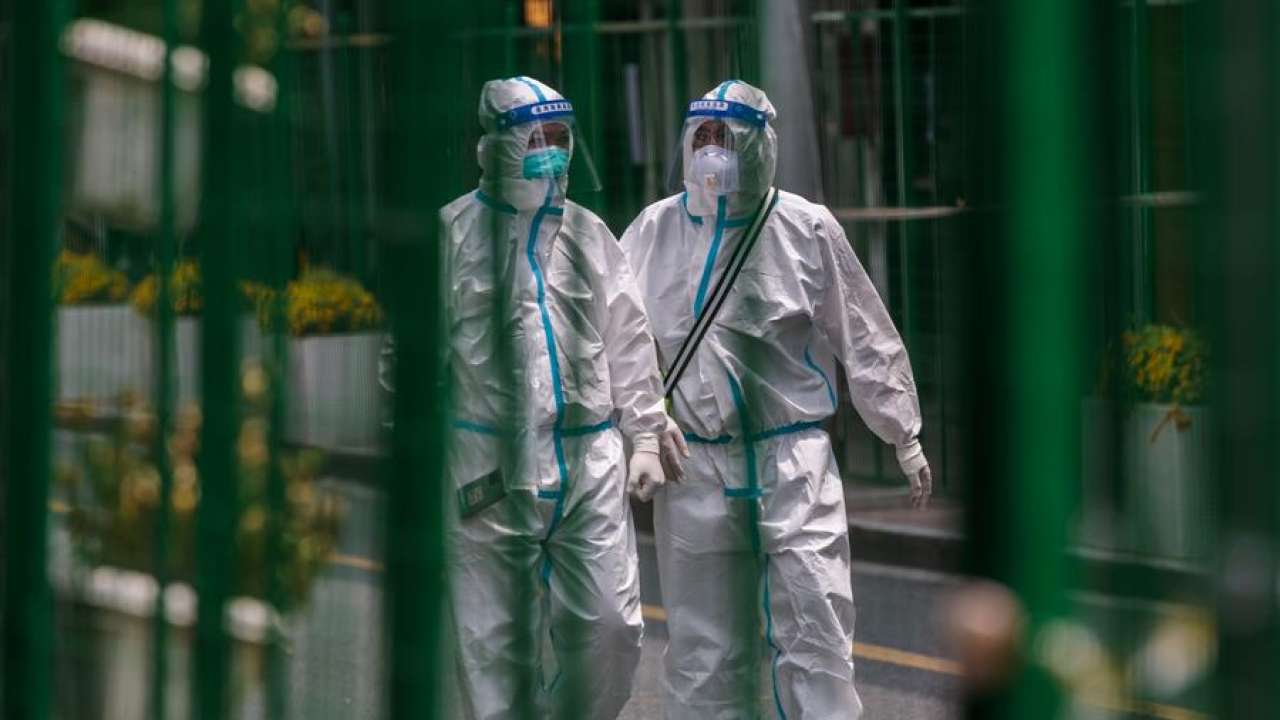
Asthma drug found to block coronavirus from replicating: IISc Bengaluru study
- by acbconcept
Drugs used to treat asthma and allergies can bind and block important proteins produced by the SARS-COV-2 virus, and reduce virus replication in human immune cells, according to a new study by researchers at the Indian Science Institute (IISC).Approved by the US Food and Drug Administration (FDA), drugs, called Montelukast, has been there for more than 20 years and is usually prescribed to reduce inflammation caused by conditions such as asthma, fever and itching-groat-gathering, official release by IISC on Monday.
In this study published in Elife, the researchers showed that the drug was firmly binding to one end (‘C-terminal’) of the SARS-COV-2 protein called NSP1, which was one of the first virus proteins released in human cells . This protein can bind to ribosomes – a protein making machine – in our immune cells and turn off vital protein synthesis needed by the immune system, thus weakening it. Therefore targeting NSP1 can reduce the damage caused by the virus.
“The level of mutation in this protein, especially the C-terminal region, is very low compared to the residual protein virus,” explained Tanweer Hussain, assistant professor in the Molecular Reproduction Department, Development and Genetics (MRDG), IISC, and senior research writers of research. Because NSP1 is likely to remain unchanged in various virus variants that arise, drugs targeting this region are expected to work against all of these variants, he added.
Hussain and his team first used computing modeling to filter more than 1,600 drugs approved by the FDA to find the firmly bound for NSP1. From here, they can choose a dozen drugs including Montelukast and Saquinavir, anti-HIV drugs.”Molecular dynamic simulation produces a lot of data, in the terabytes range, and helps to find out the stability of the drug -bound protein molecules. To analyze this and identify which drugs can work in cells, are challenges,” said Mohammad Afsar, a former project scientist at MRDG, Currently a postdoc at Texas University in Austin, and the first author of research.
Working with the Sandeep Eswarappa group, Associate Professor in the Biochemical Department, the Hussain team then cultivated human cells in the lab that specifically produced NSP1, treated it with Montelukast and Saquinavir separately, and found that only Montelukast could save the inhibition of protein synthesis by NSP1.”There are two aspects that need to be considered: one is affinity and the other is stability,” explained Afsar. This means that the drug needs to not only bind virus proteins strongly, but also remain bound for long enough to prevent protein influence host cells, he added. “Anti-HIV drugs (Saquinavir) show good affinity, but not good stability.” Montelukast, on the other hand, was found to be strong and stable for NSP1, allowing host cells to continue the synthesis of normal proteins.
Lab Hussain then tested the effect of drugs on the living virus, at Bio-Safety Level 3 (BSL-3) facilities at the Center for Infectious Disease Research (CIDR), IISC, in collaboration with Shashank Tripathi, Assistant Professor in Cidr, and his team. They found that the drug was able to reduce the number of viruses in cells infected in culture. “Doctors have tried to use drugs and have reports saying that Montelukast reduces hospitalization between Covid-19 patients,” Hussain said, adding that the right mechanism to fully understand. His team plans to work with chemists to see if they can modify the drug structure to make it stronger against SARS-COV-2. They also plan to continue hunting drugs similar to strong anti-virus activity.
Drugs used to treat asthma and allergies can bind and block important proteins produced by the SARS-COV-2 virus, and reduce virus replication in human immune cells, according to a new study by researchers at the Indian Science Institute (IISC).Approved by the US Food and Drug Administration (FDA), drugs, called Montelukast, has been there for more…
